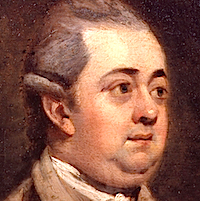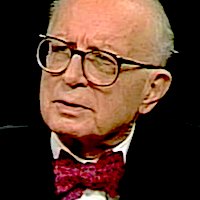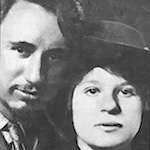

Tao Te Ching

Edward Gibbon
1737 – 1794 CE
One of history’s most important historians, Gibbon made groundbreaking contributions to our understanding of not only the Decline and Fall of the Roman Empire but to the factors that help or hinder the rise and fall of all countries, governments, and civilization itself. From an objective perspective that appreciated the civilizing influence of religion while maintaining a skeptical, non-believing openness; he examined the impact of Christianity and organized religion on a free. healthy, diverse society. His conclusion was that while they addressed deep psychological needs, they easily become subservient to political power and their main influence undermined the evolution and establishment of a sane and just society.
Lineages
British Historians / Journalists
Eras
Chinese
Qing dynasty (1644 – 1912 CE)Sources
Decline And Fall Of The Roman Empire
Unlisted Sources
Quotes by Edward Gibbon (33 quotes)
“The most worthless of mankind are not afraid to condemn in others the same disorders which they allow in themselves.”
from Decline And Fall Of The Roman Empire
Comments: Click to comment
“The power of instruction is seldom of much efficacy, except in those happy dispositions where it is almost superfluous.”
from Decline And Fall Of The Roman Empire
Comments: Click to comment
“War, in its fairest form, implies a perpetual violation of humanity and justice… The terror of the Roman arms added weight and dignity to the moderation of the emperors. They preserved peace by a constant preparation for war”
from Decline And Fall Of The Roman Empire
Comments: Click to comment
“The propensity of mankind is to exalt the past, and to depreciate the present.”
from Decline And Fall Of The Roman Empire
Comments: Click to comment
“mankind is governed by names… and submit to slavery, provided they are respectfully assured that they still enjoy their ancient freedom.”
from Decline And Fall Of The Roman Empire
Comments: Click to comment
“Modes of worship in the Roman world were considered by the people as equally true; by the philosopher, as equally false; and by the magistrate, as equally useful.”
from Decline And Fall Of The Roman Empire
Comments: Click to comment
“this pestilence… produced two strong and irreconcilable factions… Every law, either human or divine, was trampled under foot; and as long as the party was successful, its deluded followers appeared careless of private distress or public calamity.”
from Decline And Fall Of The Roman Empire
Comments: Click to comment
“All that is human must retrograde if it does not advance”
from Decline And Fall Of The Roman Empire
Comments: Click to comment
“Corruption: the most infallible symptom of constitutional liberty.”
from Decline And Fall Of The Roman Empire
Comments: Click to comment
“It was the first care of the senate to dissolve those dangerous confederacies which taught mankind that, as the Roman arms prevailed by division, they might be resisted by union.”
from Decline And Fall Of The Roman Empire
Comments: Click to comment
“Justice, humanity, or political wisdom, are qualities they are too little acquainted with in themselves, to appreciate them in others.”
from Decline And Fall Of The Roman Empire
Comments: Click to comment
“It was an inflexible maxim of Roman discipline that good soldier should dread his own officers far more than the enemy.”
from Decline And Fall Of The Roman Empire
Comments: Click to comment
“If we contrast the rapid progress of this mischievous discovery (gunpowder) with the slow and laborious advances of reason, science, and the arts of peace, a philosopher, according to his temper, will laugh or weep at the folly of mankind.”
from Decline And Fall Of The Roman Empire
Comments: Click to comment
“There exists in human nature a strong propensity to depreciate the advantages, and to magnify the evils,”
from Decline And Fall Of The Roman Empire
Comments: Click to comment
“The perfect equality of men is the point at which the extremes of democracy and despotism are confounded”
from Decline And Fall Of The Roman Empire
Comments: Click to comment
“Under the Roman Empire, the labor of an industrious and ingenious people was variously but incessantly employed in the service of the rich.”
from Decline And Fall Of The Roman Empire
Comments: Click to comment
“Refinements—under the odious name of luxury—have been severely arraigned by the moralists of every age; and it might perhaps be more conducive to the virtue, as well as happiness of mankind, if all possessed the necessaries, and none the superfluities of life. But in the present imperfect condition of society, luxury—though it may proceed from vice or folly—seems to be the only means that can correct the unequal distribution of property.”
from Decline And Fall Of The Roman Empire
Comments: Click to comment
“The most worthless of mankind are not afraid to condemn in others the same disorders which they allow in themselves; and can readily discover some nice difference in age, character, or station, to justify the partial distinction.”
from Decline And Fall Of The Roman Empire
Comments: Click to comment
“The various modes of worship which prevailed in the Roman world were all considered by the people as equally true; by the philosopher as equally false; and by the magistrate as equally useful.”
from Decline And Fall Of The Roman Empire
Comments: Click to comment
“The use of gunpowder… was soon propagated to the extremities of Asia; and the advantage of the European was confined to his easy victories over the savages of the new world.”
from Decline And Fall Of The Roman Empire
Comments: Click to comment
“If a man were called upon to fix the period in the history of the world during which the condition of the human race was most happy and prosperous, he would without hesitation name that which elapsed from the accession of Nerva to the death of Aurelius. Their united reign are possibly the only period of history in which the happiness of a great people was the sole object of government:”
from Decline And Fall Of The Roman Empire
Comments: Click to comment
“The reign of Antoninus is marked by the rare advantage of furnishing very few materials for history, which is indeed little more than the register of the crimes, follies, and misfortunes of mankind.”
from Decline And Fall Of The Roman Empire
Comments: Click to comment
“Although Pius had two sons, he preferred the welfare of Rome to the interest of his family, gave his daughter Faustina in marriage to young Marcus, and with a noble disdain or rather ignorance of jealousy, associated him to all the labors of government... Their united reigns are possibly the only period of history in which the happiness of a great people was the sole object of government.”
from Decline And Fall Of The Roman Empire
Comments: Click to comment
“Marcus revered the character of his benefactor, loved him as a parent, obeyed his as his sovereign... His life was the noblest commentary of the precepts of Zeno, He was severe to himself indulgent to the imperfections of others, just and beneficent to all mankind... Their united reigns are possibly the only period of history in which the happiness of a great people was the sole object of government.”
from Decline And Fall Of The Roman Empire
Comments: Click to comment
“Faustina has been as much celebrated for her gallantries as for her beauty. The grave simplicity of the philosopher was ill calculated to engage her wanton levity, or to fix that unbounded passion for variety... Marcus thanked the gods for bestowing on him a wife so faithful, so gentle, and of such a wonderful simplicity of manners. The obsequious Senate, at his earnest request, declared her a goddess.”
from Decline And Fall Of The Roman Empire
Comments: Click to comment
“To an active mind, indolence is more painful than labor.”
Comments: Click to comment
“A state of skepticism and suspense may amuse a few inquisitive minds. But the practice of superstition is so congenial to the multitude that, if they are forcibly awakened, they still regret the loss of their pleasing vision.”
from Decline And Fall Of The Roman Empire
Comments: Click to comment
“If a man were called upon to fix the period during which the condition of the human race was most happy and prosperous, he would without hesitation name that which elapsed from the accession of Nerva to the death of Marus Aurelius. Their united reigns are possibly the only period of history in which the happiness of a great people was the sole object of government.”
from Decline And Fall Of The Roman Empire
Comments: Click to comment
“What an excellent work is that with which our common friend Mr. Adam Smith has enriched the public! An extensive science in a single book, and the most profound ideas expressed in the most perspicuous language”
Comments: Click to comment
“In human life the most important scenes will depend upon the character of a single actor... An acrimonious humor falling upon a single fiber of one man my prevent or suspend the misery of nations.”
from Decline And Fall Of The Roman Empire
Comments: Click to comment
“We many acquiesce in the pleasing conclusion that every age in the world has increased and still increases the real wealth, the happiness, the knowledge, and perhaps the virtue, of the human race.”
from Decline And Fall Of The Roman Empire
Comments: Click to comment
“Man has much more to fear from the passions of his fellow creatures than from the convulsions of the elements. [History is] indeed little more than the register of the crimes, follies, and misfortunes of mankind.”
from Decline And Fall Of The Roman Empire
Comments: Click to comment
Quotes about Edward Gibbon (2 quotes)

“No historian has seen more vividly how nettlesome is the texture of the human past. Yet few have been bolder or more successful at grasping the nettle… For him, the menace to understanding was not so much ignorance as the illusion of knowledge… with deceptive ease, he managed to translate the catastrophes of nature into parables of human nature.”
Comments: Click to comment

“Gibbon's style is as luminous as irony would allow, and it shed light wherever it turned, except where prejudice darkened his view... His scholarship was immense and detailed. His footnotes are a treasury of learning lightened with wit... Child of the Enlightenment, Gibbon longed to be a philosopher”
Comments: Click to comment
Comments (0)